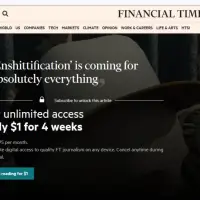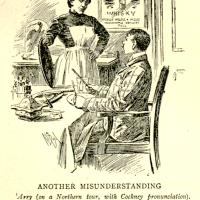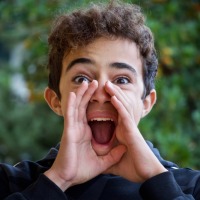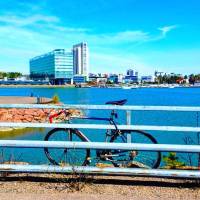Happy Friday my fellow wayfarers! I am recalling this post from the first edition of the grad course at Signum on Ursula K. Le Guin with the ever-brilliant Kris Swank. I am not teaching this deep-dive course this summer–though I have a lecture-discussion role at one point in the term. I love Kris’ approach to Le Guin as a “world-builder”–a shaper of speculative universes that are as dynamic, alluring, and provocative as her characters, storylines, and poetic prose have always been.

I admit this post is a bit indulgent. I am not able to go to MythMoot XI in June. The theme is, “The Resilience of Imagination,” and I am sad to miss it. Thus, remembering my Le Guin teaching and writing is somewhat of a consolation.
In preparation for the 2021 course, I read through Le Guin‘s entire bookshelf with an online reading group (including her essays, which were formative for me). I continue to be fascinated by her work, having been drawn into the fantasy Earthsea series as a child and young adult. Le Guin fascinates others, as well. Since she passed away, Mythlore has released a full special issue dedicated to Le Guin (see the free articles here), a Ursula K. Le Guin Prize for Fiction has been announced, and a peer-reviewed annual scholarly journal has launched, UKL: The Journal of Ursula K. Le Guin Studies. It’s all very cool.
Thus, here are the details on Kris’ Signum course and some resources that are connected to the original launch. Kris has written a thoughtful and accessible piece about “Ursula’s Bookshelf.” I’ve also tucked some of my Le Guin reflections in with hyperlinks, here and there. You can also check out my reviews and articles, such as:
- “‘A Novelist’s Business is Lying’: A Farewell to Ursula K. Le Guin (1929-2018)”
- “‘Inventing a Universe is a Complicated Business’: Ursula K. Le Guin’s Introduction to the Hainish Cycle.”
- “I Was Wrong: I like Ged Better than Arha“
- O Foolish Writer: The Living Reality of an Author’s Work, with C.S. Lewis, Stephen King, and Ursula K. Le Guin
Be well,
Brenton
Ursula K. Le Guin: Worldbuilder by Kris Swank (details here)

Ursula K. Le Guin (1929-2018) described herself as “A Citizen of Mondath,” that country of the imagination where live the storytellers, the mythmakers, and the singers. In this survey of her works, we will study Le Guin’s own use of story, myth, and song to build unique worlds at the heart of her fiction: the far-flung Hainish Universe, the intimate islands of Earthsea, the disparate states of the Western Shore, and others. We will examine her literary theories of science fiction and fantasy as vehicles for myth, archetype, and character, and as locations for the exploration of gender, politics, the environment, race, culture, religion, and power. Finally, we will examine how her views evolved over time as she revisited and re-visioned the worlds she had built, and how her legacy empowers other authors to build worlds of their own.
John Garth, “Ursula Le Guin, the language of Earthsea, and Tolkien”
Always thoughtful, writerly historian John Garth posted an article on his website about Le Guin and language. While Le Guin has more fully worked out implications of her Hainish world and its names, the idea of language runs deeply through Earthsea. Garth asks whether there could be a tribute to Tolkien embedded in Le Guin’s classic fantasy novel, A Wizard of Earthsea. I was skeptical at first about Garth’s winsome answer, but found the article brought a number of things together for me. “Ursula Le Guin, the language of Earthsea, and Tolkien” is worth reading not just for the thought experiment but for what the experiment produces when it comes to constructed language invention.
I encourage you to read this piece and John’s other work on imaginative literature, including his books on Tolkien.
Thesis Theater and Paper: Maximilian Hart, “Draconic Diction: Truth and Lies in Le Guin’s Old Speech” (Full Video and Full Paper Link)
I was pleased in 2021 to be the second reader for an exciting project by one of Signum University’s bright MA students. Beginning with curiosity about “Old Speech” in Ursula K. Le Guin‘s Earthsea series, under the supervision of Kris Swank, Maximilian Hart has pulled together a paper that draws on linguistic theory, Platonism, and Taoism in a conversation between Le Guin and the theories of language and story of the Inklings—C.S. Lewis, J.R.R. Tolkien, and the oft-forgotten but ever-present Owen Barfield. And, best of all, there are dragons–and the question about whether dragons can deceive in Old Speech. If you enjoy Le Guin’s work, or if you are curious to see the Inklings as thinkers in writers in dialogue with a later speculative fiction writer, you can see the full video from Signum’s Youtube page below, and you can find the full paper here.
Maximilian Hart, “Draconic Diction: Truth and Lies in Le Guin’s Old Speech”
Thesis Abstract
Ursula K. Le Guin’s Earthsea series enters an ongoing dialogue about the nature of language; in it, she proposes a language spoken by dragons and wizards, “the Old Speech,” a language fundamentally unlike our human languages. It is a language in which it is impossible to lie, a language which is simultaneously descriptive and generative: to say the name of a thing is to have the thing come to be. This Old Speech is what the ancient poetic unity of language—to use Owen Barfield’s terms—might look like: a language in which the Tao, the underlying reality of a thing, is named in every word, a language in which every word is a narrative and true. However, dragons, not the titular, and ostensibly central, wizards, are the true poets of Earthsea; the dragons are the ones who see with a poet’s eye and who are actually capable of wielding the Old Speech in its ancient, unified, fully poetic sense, a sense which encompasses all shades of meaning and existence and narrative in one word. Le Guin’s Old Speech, then, can best be understood as a true language of Barfieldian ancient unity, and the dragons are not liars but poets practicing their art.
For the PDF of the paper, click here.
About the Presenter
Maximilian Hart is a high school English teacher and has been a student at Signum University since 2016. His academic focus is currently on studying the works of Ursula K. Le Guin and her approaches to language. When he’s not reading books for class or his own high school students’ papers, he’s spending time with his wife and children or pretending to improve at chess or woodworking.
About Signum Thesis Theaters
Each of our master’s students writes a thesis at the end of their degree program, exploring a topic of their choice. The Thesis Theater is their opportunity to present their research to a general audience, and answer questions. All are welcome to attend!
























You called this post indulgent, but I’m so glad you made. I am new to LeGuin’s work, having just started with “The Ones Who Walk Away from Omelas” and “A Wizard of Earthsea” a few months ago. I had a few thoughts about Tolkien and language while reading “Earthsea” so your link to John Garth’s article is intriguing; I’m wary of spoilers for her other books but I’ll check it out regardless. I can’t make any of these courses (at least not now) but it all looks interesting.
Thanks for the encouragement Kevin! I do believe that you have made a correct connection between the two authors.